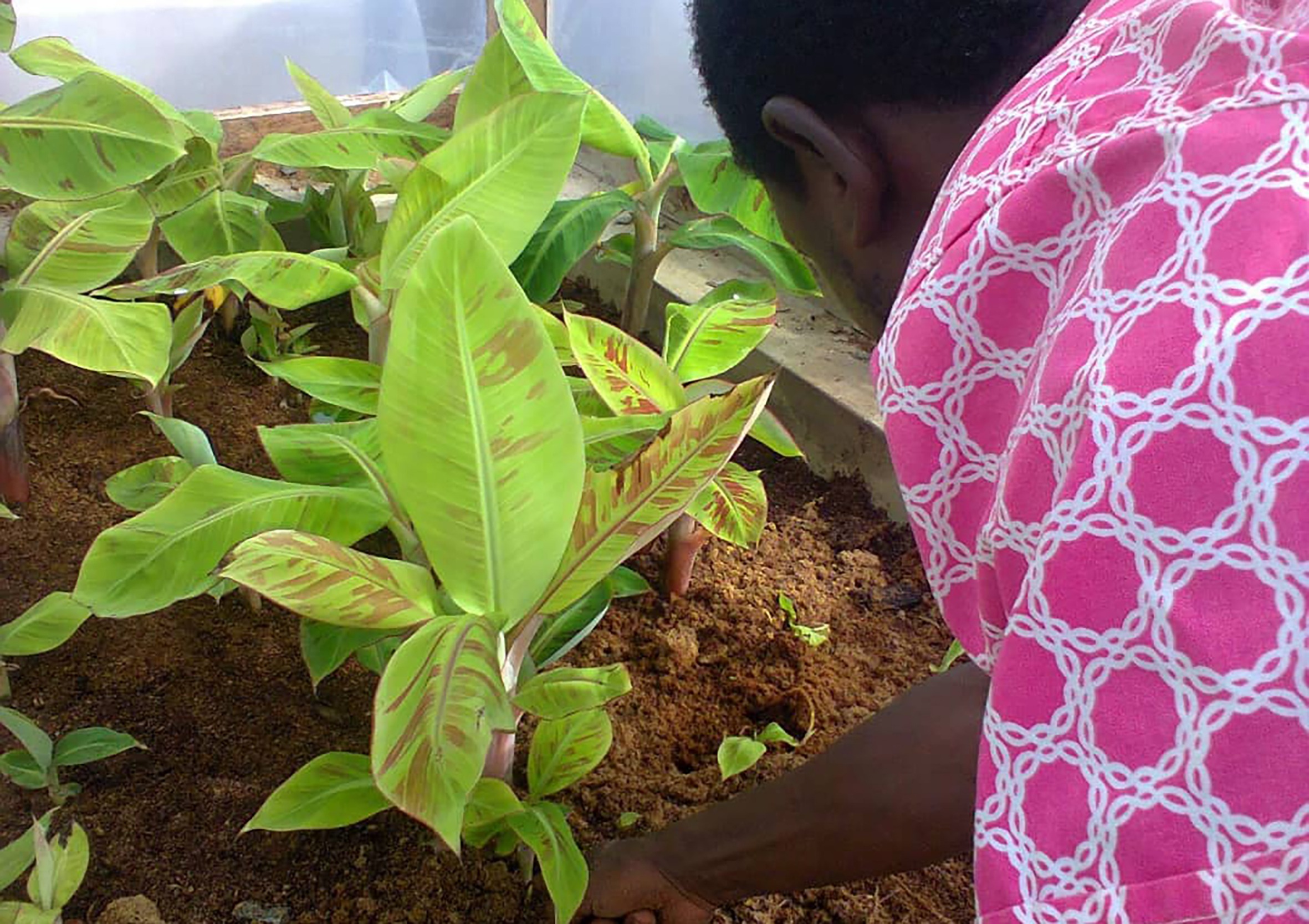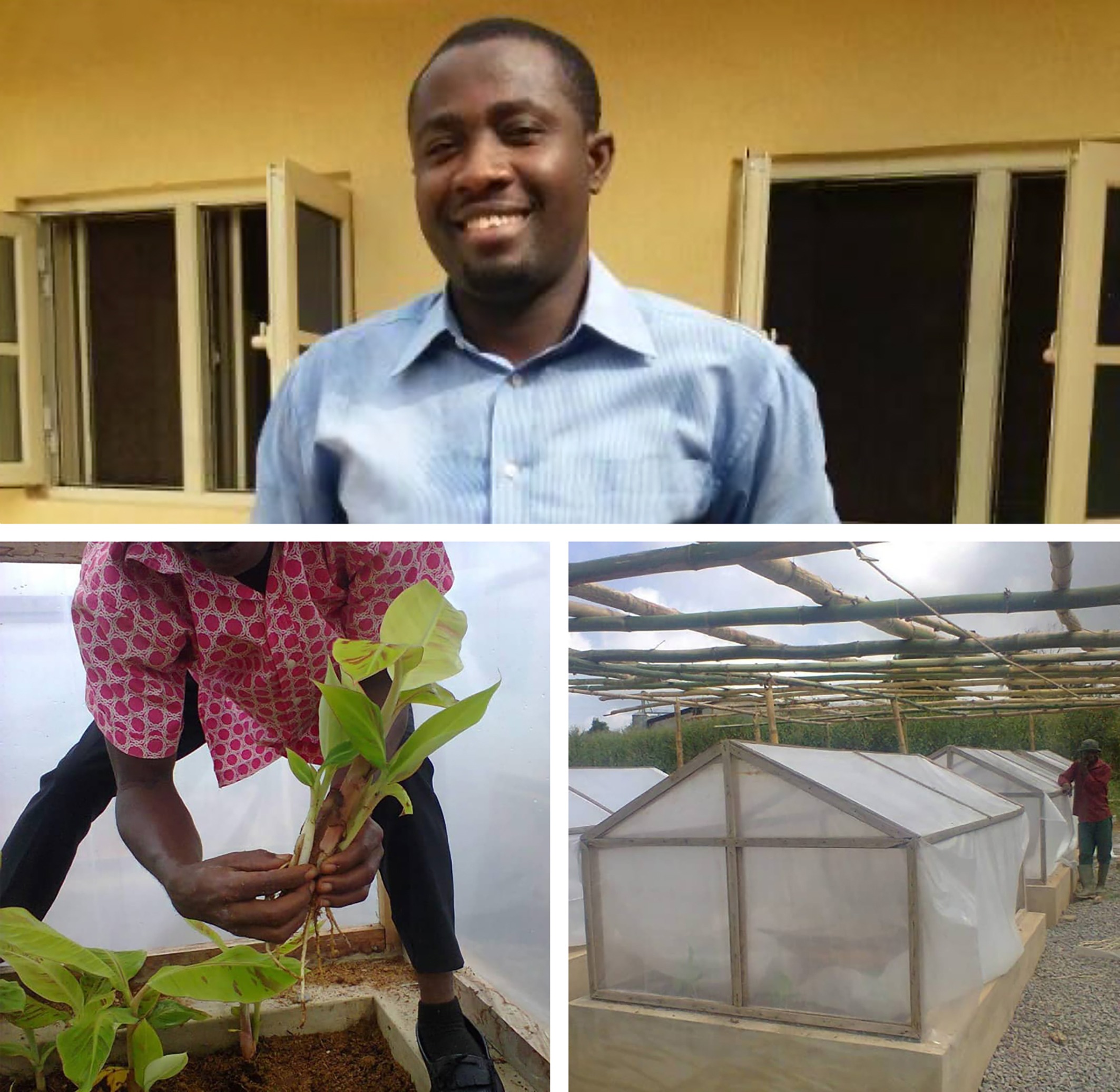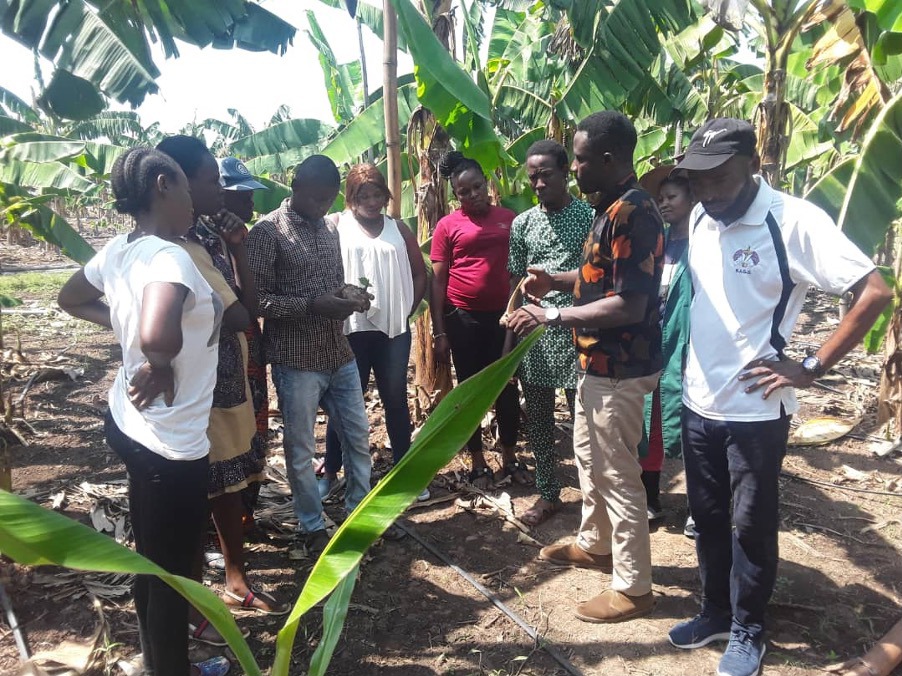

High-quality, disease-free plantain suckers fast – training for Nigerian farmers
January 17, 2023

The Crawford Fund’s training program has touched over 13,000 developing country agricultural scientists, extension staff and farmers in a diverse range of topics.
As part of our training initiatives, we deliver short-term training of early career agricultural scientists by Australian specialists and institutions in small groups either in Australia or overseas. This is focused on practical, short-term, hands-on training tailored to the needs of an individual or for a group to increase the practical skills of agricultural scientists or farmers in developing countries.
Our NSW committee recently supported a training initiative led by Saheed Alarape, a Nigerian with a background in Agronomy, Plant Ecology and Applied Genetics and ten years of work experience in both the laboratory and the field. The funding supported the training of farmers (including women and youths) on how to rapidly multiply high quality, disease-free plantain suckers, via macro-propagation techniques over a three-month period.
According to NSW Crawford Fund Committee member Dr Anika Molesworth, this project met the Committee’s objectives of both giving training and experience to young agricultural researchers and, delivering projects that benefit farming communities in food security, environmental management and improved livelihoods.
This training ran for a period of three months, focusing on three locations, and engaging with around 45 farmers in Oyo state, Nigeria. The training included both practical training and theory.

Plantain and banana are important staple crops and sources of income for the smallholder farmers in the humid forest and mid-altitude agro-ecological areas of sub-Saharan Africa. According to the FAO, plantain and banana are the eight most important food crop in the world, and the fourth most important in least developed countries. However, the productivity and lifespan of plantain and banana have drastically reduced due to pest and disease pressure, a problem which is increasing and threatening regional food security. There are about 120 plantain varieties and 70 highland bananas, and all suffer from nematodes, weevils, and black Sigatoka.
Current yields of plantains in Nigeria, where this training program was held, are seven tons/hectare while potential yield is 20 tons/hectare. The low yield is especially linked to the poor, and low, quality planting materials, soil base and inaccessibility of improved varieties. The low yield can be attributed to farmer over dependence on natural regeneration of plants for the supply of planting materials, which are contaminated by pests and diseases. Plantains are considered to be climate resilient crop, vital to ensure food security to ever increasing populations.
Macro-propagation is a relatively easy and low-cost technique that can be used to grow disease-free plantain and banana suckers. Demonstrations of macro propagation and field decapitation methods were provided as part of the training program, with plant materials used for the training sourced from local farmer’s fields. This project aimed to improve farmer knowledge and skills in crop growing, and therefore their capacity to be productive and profitable.

Following this training, it is expected that farmers will be able to rapidly multiply high quality, disease-free plantain suckers and it is anticipated that some farmers will also have interest in the sale of suckers to other farmers in the neighbouring communities thereby improving their own livelihood.
“One of the training participants has already started building his own shed and macro propagator chamber with the knowledge he gained. This is a testament that the participants fully understood the information and the teachings given to them,” said Saheed.
“The availability of sufficient quality planting material will accelerate production of plantain and banana production which will ultimately lead to achieving food security, nutritional security, agro-entrepreneurship, possibility of planting all year round and, this will enhance development and livelihood of the farmers,” he said.
Saheed and the participating farmers were incredibly grateful for the support of the Crawford Fund and the NSW Crawford Committee.
“The last three months have been the best three months of my life. I suddenly had purpose again. This activity spurred me to challenge myself and never give up on my dreams, even in trying times. I appreciate this from the depths of my heart – thank you!,” said Saheed.
“The project has been a great success”, said Anika.
“The training concluded with participants very happy, more educated and informed on how to rapidly multiply plantain suckers. They were elated to be part of the capacity development exercise. The positive feedback and comments spread far and wide, and soon neighbouring communities were clamouring asking for such opportunity in their area too!”




